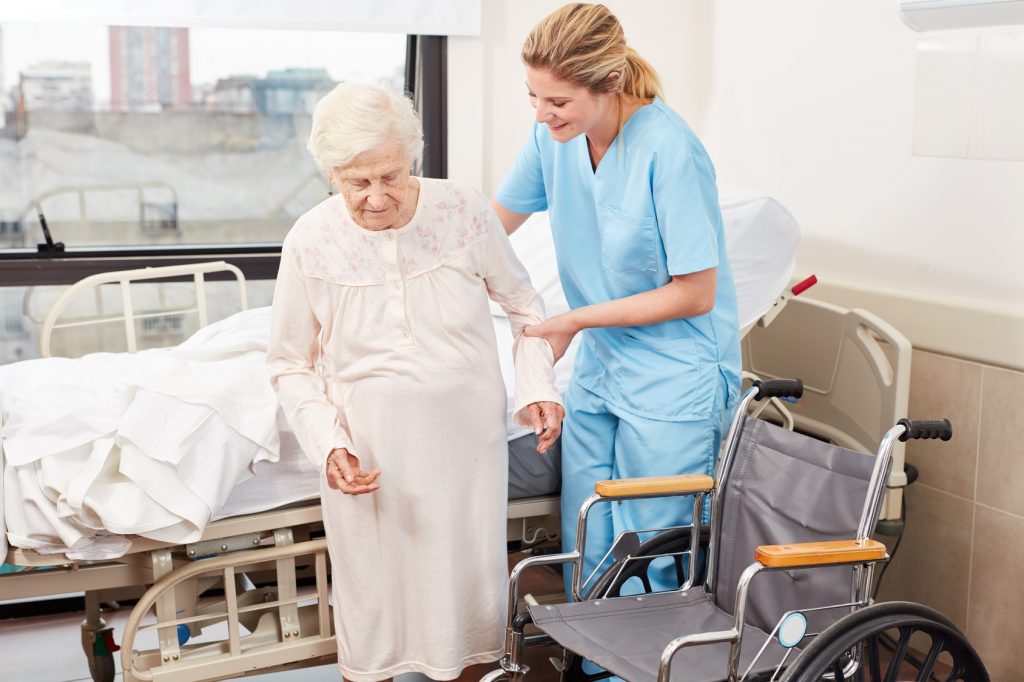
Twenty-four hours in a day may not be enough to fit in all the caregiving duties for which a compound caregiver is responsible. Taking care of multiple people, which defines compound caregiving, occurs often. Managing compound caregiving is the key to avoiding caregiver burnout.
Compound caregiving is also known as multi-person caregiving. The scenario varies from household to household. An adult might care for two aging parents. Or an elderly spouse may care for an aging wife and grandchildren. Caregivers may juggle their young families while caring for a parent.
Providing care to multiple people simultaneously is exhausting. Studies indicate that the average compound caregiver spends 50 hours per week performing caregiving duties. When so much time is spent caring for more than one person, some responsibilities do not get done.
A caregiver’s home may not remain as clean as prior to starting the activities involved in compound caregiving. Dishes may sit longer in the sink when caregiving tasks take the caregiver away from day-to-day responsibilities. Caregivers are less likely to get an adequate night’s sleep on a daily basis.
The lack of time and energy for self-care activities can lead to caregiver burnout. Compound caregivers are urged to watch out for symptoms of burnout. When burnout develops, the caregiver loses the ability to provide quality care for both herself, and the individuals receiving care.
What are symptoms of compound caregiver burnout?
Common warning signs associated with compound caregiving burnout include emotional ones, such as becoming short-tempered and irritable or feeling depressed, anxious, and lonely. Feelings of isolation are not unusual when compound caregivers lose friendships due to focusing solely on caregiving duties.
A compound caregiver who has little time for herself, hobbies, or socializing can easily become resentful. The depression that results from burnout can lead to the caregiver no longer having an interest in activities she once enjoyed. She may also frequently feel tired and rundown.
The burnout caused by failing to properly manage compound caregiving can cause the caregiver to start abusing food, alcohol, or drugs. When burnout hits, the caregiver is likely to have trouble concentrating. She also may become ill on a more frequent basis—a physical consequence of feeling burned out.
As mentioned, compound caregiving can take the caregiver away from performing her own household duties. When the home is not maintained as it should be, the quality of life for the entire household is reduced. Clearly, compound caregiving should be effectively managed to be beneficial.
How do compound caregivers avoid burnout?
- Research the senior’s condition
Efficient time management is the key to successful compound caregiving and remaining recharged and refreshed. Become knowledgeable about the health conditions with which the care recipient has been diagnosed. Caregivers who research symptoms of the disease know what to expect.
Parkinson’s disease, for example, worsens over time. A compound caregiver who is knowledgeable about the disease will be better equipped to care for the person as the disease progresses. Accept caregiver training from a geriatric care manager or an online caregiver support group.
- Share responsibilities
Delegate certain care responsibilities to others to prevent feeling overwhelmed. A sibling who has expertise in financial matters might manage the care recipient’s finances. Ask a neighbor to mow the senior’s lawn once a week. A friend can plan and prepare meals.
Additional sources of support include services, such as meal delivery and online pharmacies. Community volunteers who work with aging people can be an enormous help. Look into adult day centers, where a senior can be admitted for the day and receive quality care and supervision.
Home care agencies are also reliable sources of in-home support. Take advantage of respite care options, which give compound caregivers a break from the rigors of constant caregiving for multiple people. Taking a breather from responsibilities allows the caregiver to return with a renewed outlook.
- Engage in self-care
Practice self-care to avoid the pitfalls of compound caregiving. Caregivers who are emotionally, physically, and mentally exhausted have little to offer any of their care recipients. It’s important for caregivers to keep their minds and bodies strong to handle caregiving tasks.
Eat a nutrient-rich diet and receive a quality night’s sleep; seven to eight hours of sleep is recommended. Regular exercise is also important to staying physically healthy. Schedule an annual medical checkup. Pray or meditate on a daily basis to rejuvenate mentally.
While performing compound caregiving duties, make an effort to maintain relationships with other people. At least once a month, take a break, perhaps going out to a movie with friends. Also participate in a hobby or two. Self-care activities ensure compound caregivers perform at their best.
Trying to fit self-care activities into a compound caregiving schedule can seem like a monumental feat. While making time for yourself may feel challenging, respite care from Assisting Hands Home Care helps turn that goal into a practical reality. We are a home care agency staffed with skilled respite caregivers.
Our professional respite caregivers will pick up caregiving duties exactly where you left off. Family caregivers can expect quality care from us, as we specialize in all aspects of nonmedical senior care. You then have an opportunity to take the well-deserved break you’ve been anticipating.

Assisting Hands Home Care respite caregivers handle several care responsibilities. We help seniors with personal care activities, such as toileting, bathing, and grooming. Our caregivers prepare balanced meals, give medication reminders, provide transportation, perform light housekeeping, and shop for groceries.
The comprehensive non-medical care we provide to our elderly care recipients ensures they remain physically and emotionally healthy. Compound caregivers likewise benefit, having a window of opportunity to visit with friends, get a medical checkup or go on a family vacation.
Home care from Assisting Hands is flexible. We are available to serve the needs of seniors on a short- or long-term basis. When you need compassionate respite care in Glen Ellyn, Warrenville, Naperville, Westmont, Woodridge, Lisle, Wheaton, IL, or the surrounding areas, choose us. Call (630) 634-9316 today to schedule your in-home consultation for quality senior care.
















